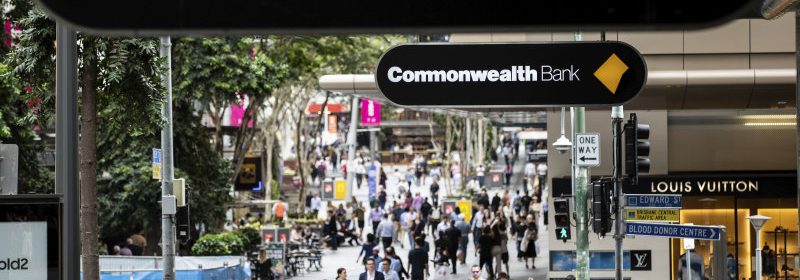‘Shortage of people’: CBA defends labour hire to fight financial crime

The Commonwealth Bank’s top risk officer says there is fierce competition for workers experienced in fighting financial crime, after it was revealed the country’s largest bank relies on labour hire firms to fill permanent positions with temporary contractors.
The Age and Sydney Morning Herald reported last week CBA used recruitment firms Momenta and Hays to fill roles across its anti-money laundering department, including teams that monitor high risk customers and suspicious transactions.
CBA chief risk officer Nigel Williams says training is essential for hiring contractors to work in financial crime. Credit:
While it is common for large companies to use contractors during major projects, the big four banks are divided on the use of these firms to fill ongoing financial crime roles. CBA and the National Australia Bank use temporary contractors in these teams, whereas ANZ and Westpac do not.
CBA’s chief risk officer Nigel Williams said contractors were not used in senior roles and while the bank would ideally have all of its financial crime team on permanent contracts, a major skills shortage meant it was forced to use labour hire firms.
“The shortage of skilled resources in financial crime compliance is real,” Mr Williams said. “In a perfect world, we would have 100 per cent permanent staff. There has just been a shortage of skilled resources in Australia and it’s just an effective mechanism to hire people for the numbers we require and the quality we require.”
CBA plans to grow its financial crime department from about 2500 to more than 3000 in the next year and invests $200 million per year in training, hiring and technology to improve operations. Mr Williams said contractors were more expensive than permanent workers and would be converted into full-time staff where possible.
CBA’s training program for new staff lasts up to 12 weeks and has been described as high quality by those who have completed it. Mr Williams said there was no disadvantage in using contractors that were well-trained, but acknowledged instances of misconduct were inevitable.
“Not every person who joins us, not every contractor, will work out. From time to time, people don’t follow policies and procedures that we’ve laid out. That’s a fact of life in any business,” he said. “Where someone breaches or is found to have breached these procedures we will take the appropriate action. This includes dismissal for serious breaches.”
A small cohort of CBA staff was found to be copy and pasting information in reports sent to financial crimes watchdog AUSTRAC and sacked soon after the practice was detected. Former CBA staff have said the financial crime department is “numbers-driven” where teams are encouraged to compete against each other by clearing a certain number of alerts per day.
Mr Williams said these concerns were “historical” and the bank now focused on rewarding quality over quantity, adding CBA has a quality assurance team that constantly reviews work.
CBA staff have 30 minutes to clear each alert, Mr Williams said, and this can be extended to 1000 minutes if further investigation is required. CBA rewards staff members that use investigative skills to report intelligence to AUSTRAC that results in tangible enforcement outcomes, like an arrest or identification of an individual involved in money laundering or drug trafficking.
“We are committed to helping prevent and disrupt financial crime and we work very closely with AUSTRAC in support of that. We are very focused on providing high quality intelligence to AUSTRAC.”
Mr Williams called for greater collaboration between universities and the private sector to encourage Australian students to seek out careers in preventing financial crime, adding it was a growing industry with interesting and important roles.
“These jobs are going to last. This is not going away. The criminals evolve, the typologies evolve and financial crime professionals are always going to be required.”
CBA was fined $700 million in 2018 for systemic breaches of anti-money laundering laws, including ATM machines without $10,000 caps that were used by organised criminals trafficking drugs and firearms.
The Market Recap newsletter is a wrap of the day’s trading. Get it each weekday afternoon.
Most Viewed in Business
From our partners
Source: Read Full Article

